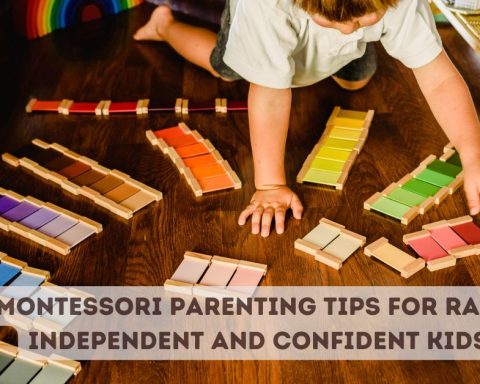Parenting time, according to this study, is the time a child spends with his or her noncustodial parent. A noncustodial parent is the parent who is not living with the child or is not with the child most of the time. In a separation or divorce, the court may grant custody of the child to one parent and parenting time with the child to the other parent. The time spent between the child and each parent—both quality and quantity—is an important consideration.
Parenting Time Schedule
Before the court allocates parenting time, there are several factors to consider, such as the age of the child and the relationship between the child and the noncustodial parent. A parenting time schedule should include:
- Vacation schedules. Both parents can schedule time separately to take the child on vacations and holidays. The parents should agree on the number of vacation days available for each parent.
- Schedule for special occasions. Special occasions, such as birthdays and baptisms, can be scheduled with either of the parents. Include the specific details of the event.
- Break schedule. Clearly outline which breaks (such as summer break) are spent with which parent and exactly for how long.
Parenting Time Guidelines
These rules and regulations govern parenting time at any particular point in time. Breaking the rules will result in court involvement.
- Child needs. Parenting time should aim at fulfilling the child’s physical, social, and emotional needs so that the child’s needs are not jeopardized at any point in time.
- Split custody. If parents have more than one child, they can split custody (i.e., each parent takes custody of specific children) to avoid placing all the burden of children-rearing on one parent.
- Parent schedules. Parenting time schedules can be adjusted depending on the circumstances. For example, a parent who is in the military or who lives in a different state will have limited time with the children, and so parenting time must be scheduled when the parent is available.
- Modifications. Although parenting time schedules can be adjusted to suit both parents when necessary, the court steps in if the parents cannot agree on any adjustments.
Parenting Time: Illinois
In Illinois, parenting time is the time that the noncustodial parent spends with the children. The parenting time schedule usually includes the child’s residential, holiday, and summer-break details, showing the parenting time allocated to both parents. Parenting responsibilities are shared between both parents.
The parents are required to come up with their own parenting time schedule so that they have a chance to create one that is applicable to them. However, sometimes the parents may fail to agree on the details of the schedule. In this case, the court will draft a schedule for them. Most courts in Illinois have a standard schedule where the child spends time with the noncustodial parent every other weekend or at least one evening every week.
Parenting Time: Colorado
In Colorado, the terms custody and visitation were replaced with parenting time and parental responsibilities. Courts in Colorado encourage parents to draft their own parenting time schedule instead of imposing one on them. To that end, the court will have both parents attend mediation sessions, parenting classes, and counseling sessions in order to help them come to a concise arrangement for sharing their parental responsibilities.
Colorado courts strive to put the interests of the child first. As such, they believe that it is in the best interest of the child to be raised and nurtured by both parents. Ultimately, the court bases most of their rulings on the child’s wishes and on information received from the child during interviews or from the attorneys appointed to represent them throughout the divorce case.
Colorado parenting times vary depending on the child’s age and the child’s special needs. For instance, children who are eighteen months old or younger may be allowed extra and more frequent time with the noncustodial parent compared to school-age children. In any case, the schedule must include an all-inclusive plan for the child’s breaks, holidays, and vacations.
Parenting Time: Ohio
In Ohio, parenting time refers to custody and visitation. The schedule is basically an outline showing the child’s time with each parent, and it includes all the schedules pertaining to the child. Ohio courts allow the parents to make their own schedule but will only approve it if both parents agree. Parents may be required to attend mediation sessions if they disagree; if this fails, the court may issue its own schedule, to which the parents must adhere.
The parenting time schedule states where the child will be both on weekends and on weekdays. It determines where the child will be during holidays and other special days. In addition, parenting time schedules in Ohio include where the child will be during school breaks and vacations, such as summer break.
Before the court approves a parenting time schedule, it examines several factors. First, the court considers the age of the child. Toddlers and very young children will require special arrangements. The court will also look at the child’s special needs, including his or her mental health and safety. The child’s relationships with his or her parents, siblings, and extended family as well as the ease with which the child adjusts to changes are also considered. The child’s schedules, such as school and vacations, are evaluated along with the parents’ schedules. However, it is important to note that the court may overlook all these factors in favor of the child’s wishes or information they learn from an interview with the child. Also, read on this website: Ohio Shared Parenting Child Support Calculator
Parenting Time: Georgia
Georgia parenting time depends on the custody arrangements. In joint physical custody, the child spends an equal amount of time with both parents. If one parent has sole physical custody, the child primarily lives with one parent, and the other parent is granted visitation and parenting time.
The court gives the parents time to come up with a parenting time schedule that works for them. Parenting time schedules should incorporate all the child’s holidays and breaks and has to include a specified residential schedule. Including provisions for communication between the parents will help the schedule run more smoothly. If the parents cannot agree on a plan, the court will decide on a workable plan for them, with which the parents must comply. Since the court is not familiar with the parents’ schedules, it is always better if the parents try and come to an agreement on their own.
Georgia courts strive to promote the child’s welfare in all their rulings. With that goal in mind, both parents usually share in the parenting responsibilities of the child. However, when the child reaches fourteen years of age, the child can choose which parent to live with, and the court will consider his or her wishes.
Parenting Time: Washington
In Washington, the parents are required to draft a parenting schedule that includes everyday activities, holidays, and summer breaks, and it should specify which parent the child will be with in each instance. The parenting time schedule also needs to include communication strategies for the parents; details about how, when, and where to exchange the child; and the travel logistics involved.
The parenting time schedule should consider the distance between the parents’ residences, the parents’ work schedules, the relationship each parent has with the child, and most importantly, what would be best for the child. It should also take into account any special needs the child has, the child’s wishes, and his or her involvement in school activities. These considerations will help parents make a schedule that has the best interests of the child at heart and will promote the safety, growth, and well-being of the child. Also, read on this website: How to File a Parenting Plan in Washington State?
Parenting Time: Florida
In Florida, the terms custody and visitation have been replaced by parental responsibility and time-sharing. The time that each parent spends with the child is called time-sharing. Parental responsibility encompasses the parents’ decisions about major aspects of the child’s life, including education, health care, discipline, and religion. The parents can make either joint decisions about the child or one parent can make the decisions independently.
The parenting plan should include provisions for communication and role-sharing strategies. It should also specify who is responsible for health care, school-related activities, and other aspects of the child’s life. Determine who is responsible for the child’s discipline. Of course, it should also specify how much time the child spends with each parent. If one parent has sole parental responsibility, describe in specific terms what the co-parent’s contribution should be toward the child’s welfare and support.
It is essential that both parents agree to every clause in the parenting plan. However, if they do not agree, Florida has parenting coordination programs especially for parents who can’t seem to resolve their parenting plan conflicts. Specifically, the court appoints a parenting coordinator to offer guidance and mediation. The coordinator helps the parents make a plan that is workable and agreeable to both parties and reports to the court. If the parents still do not agree, the court will step in with its own parenting plan, with which parents must comply. The parenting coordinator will give suggestions that the court will use to create its parenting plan schedule. Florida courts accept and create all parenting time schedules with the best interests of the child at heart. The main focus is always the child’s well-being.
Conclusion
Parenting time is essential for the child during the parents’ divorce or separation. Therefore, parenting schedules should be adhered to as much as possible. Experts say the effects of divorce on children may impact all aspects of their lives even into adulthood. So use parenting time wisely. Parenting time isn’t just about quantity. Parents should also use parenting time to learn about and nurture their children.
References
- Abarban, Alice. “Shared Parenting after Separation and Divorce.” American Journal of Orthopsychiatry 49, no. 2 (1979): 320–329. Retrieved from http://www.columbia.edu/itc
- Swinton, Alisha T., Patti A. Freeman, Ramon B. Zabriskie, and Paul J. Fields. “Nonresident Fathers’ Family Leisure Patterns during Parenting Time with Their Children.” Fathering: A Journal of Theory, Research, and Practice about Men as Fathers 6, no. 3 (2008): 205–225. Retrieved from http://mensstudies.info/OJS








